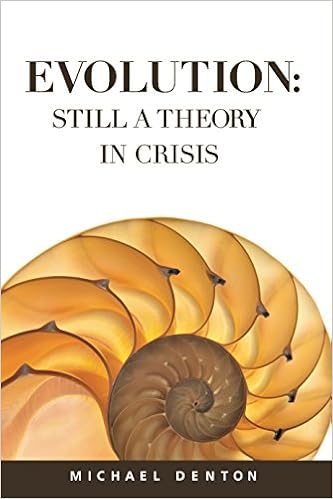 Structuralism is a reasonable approach to biology, according to which many patterns in life forms are not the result of Darwinian selection but rather underlying constraints of nature.
Structuralism is a reasonable approach to biology, according to which many patterns in life forms are not the result of Darwinian selection but rather underlying constraints of nature.
Functionalism is best represented by Darwinism: The forms life takes are due to survival of the fittest. Contrary to what one hears from Darwinists, there are good arguments for structuralism.
In terms of the debate between structuralists and functionalists, Denton is a structuralist.
From Michael Denton’s Evolution: Still a Theory in Crisis (2016):
Although this book is primarily a critique of Darwinian incremental functionalism, as was Evolution, it is also—much more than my original book—a systematic defense of typology. Obviously, if the Darwinian enterprise fails ad the taxa-defining homologs cannot be approached via adaptive continuums, then the idea that the Types are real categories in the world-order, no less than atoms or crystals, is supported by default.
I believe, along with Owen and many other nineteenth-century biologists, that life is an integral and lawful part of nature and that the basic forms of life are in some sense built into nature. I see ths notion massively reinforced by the evidence of twentieth-century cosmology that the laws of natue are uniquely fine-tuned for life. Inevitably, therefore, this book is a defense of the typological world-view similar to that subscribed to by many nineteenth-century biologists: that the taxa-defining homologs represent a special set of ntural forms which constitute the immutable buildingblocks of the biological world. (pp 28–29)
These structural patterns are a form of design in nature. Are they “intelligent design”?
First, what is intelligence? What is information? How is information created?
If we want to get past the fairy tales of pop science, we must grapple with fundamental issues.
Note: No surprise, many front the multiverse as a way of escaping fine tuning. The multiverse is not falsifible, so they go to war against falsifiability, and some now advocate non-evidence-based science.
Realistically, it’s a high price to pay to defend Darwin and his ilk. That said, the naturalists won’t have the science but they will have the audience.
See also: Michael Denton, as his book Evolution: Still a Theory in Crisis reveals, is a structuralist. He thinks that many puzzles of evolution will turn out to relate to as yet unidentified laws of physics and chemistry.
Of course, if one insists, with Stephen Jay Gould, that evolution is random, any such quest is in vain.
Denton himself certainly learned what can happen to those who search for such laws.
Convergent evolution: “Emerging view” that evolution is predictable?
and
What the fossils told us in their own words
Copernicus, you are not going to believe who is using your name. Or how.
Follow UD News at Twitter!